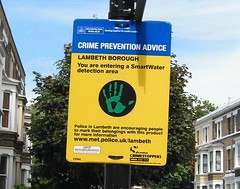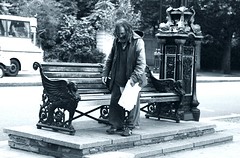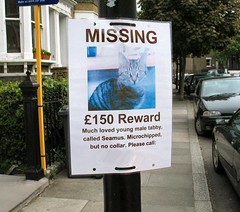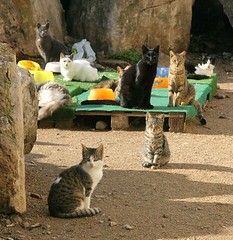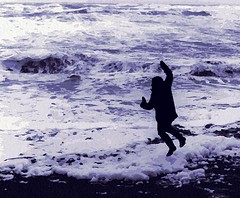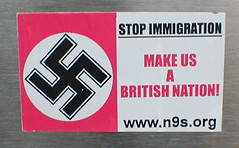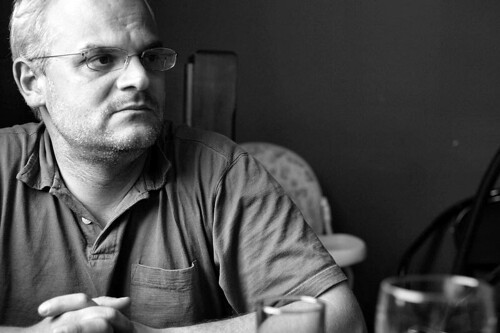Another reason why I was up at 5.30am writing my last entry, and the reason why I haven’t written again for a few days since, is that we were waiting to hear some news about a close friend of Tracy’s who was sick in hospital.
We heard the news a few hours later. She had died.
She was 36.
All sorts of thoughts race through your head when someone close to you dies, particularly when that person is young.
Tracy took the news badly at first but that subsided after a couple of days. To be honest, I’m not quite sure she’s accepted what has happened. Tracy was chatting with her friend at her bedside on Sunday. A couple of days later she was gone. But Tracy hasn’t yet had to confront the reality of that passing.
If the process of assimilating bad news really can be broken down into a five stage, denial, anger, bargaining, depression and acceptance process, Tracy’s still stuck on first base. For many reasons, I’m not looking forward to the cremation service later this week.
Grief is a deceptive emotion. On the face of it you are feeling and expressing sorrow on behalf of the person who has died. But, on reflection, that just doesn’t stack up. That person is gone. Either way, whether you believe or disbelieve in survival of consciousness after Death, it simply doesn’t make sense feeling bad on their behalf. They really do not care any more.
Grief, and I don’t mean this in a judgmental way, is a selfish process. It’s about that which is lost to the living, not to the dead. Most of the time, if young enough or strong enough, we eventually learn to live with our new reality without the person we have lost and invest in that new reality. Some people, usually the old, never adjust and live the rest of their lives faced with a permanent vacuum. Having said that, there are some holes that can never be filled, however young and adaptable you might be. How do you fill the gap left by a parent or the love of your life? How do you deal with the second half of your life, when there are more people leaving than joining you?
Growing old can really be a pisser but, as I like to say, it’s usually better than the alternative.
Death, particularly untimely death, stirs up other emotions as well as a sense of loss. If you’re older than the person who died there’s a sense of guilt as well. Why is it you have enjoyed five, ten or however many more years of life? Are you using that time well? Was there something you could have done to help that person in some way? Were you a good enough friend, partner or son when they were still alive?
And then, of course, there’s you own sense of mortality. Over a meal with a couple of friends last week we drifted onto the subject of passing forty, as I have just done. We all agreed that little within ourselves had changed as a result of reaching that milestone save one very significant thing. We no longer felt immortal. When you turn 40 you hope that this is just the halfway point in life and that you have many productive and enjoyable years ahead of you. However, unless you’re pretty stupid or highly accomplished at self-deception, you also realise that after 40 you’re fair game for the Reaper. A terminal lump or a telltale twinge could appear for the first time on any given morning and no one, least of all yourself, would have the right to be the least bit surprised. If you die younger than 40 it’s a tragedy, after 40 it’s a shame.
There are also a couple of other, less usual, emotions I’m feeling after hearing the bad news last week.
Anger and shame.
You see, it doesn’t look like our friend died from what she went into hospital with in the first place.
She died from an infection. Whether it was contracted in the hospital or not is unclear. Maybe we’ll never know. Hospital staff have learned to be quite coy in discussing such matters.
My own father spent the better part of seven months in hospital last year. He underwent major surgery to remove his cancerous bladder and, to our surprise and gratitude, pulled through surprisingly well. Then the infections started. He was in and out of hospital, mostly in, for six months. He came close to death at least a half dozen times. And throughout that time I kept thinking ‘Why can’t they keep him free from infection long enough to get better and get out of this place. What the f*ck is going on here.’ It was like torture, and it went on and on. My father is a tough and stubborn man who had the full-time support of a very dutiful, extended family. Other, less fortunate, people would have just died.
Our hospitals are death traps.
Even according to triple-spun government figures, something like 5,000 – 20,000 people die in the UK from hospital contracted infections ever year. Something like 100,000 people contract infections without dying. I’m not sure anyone knows what the true figures are. I have no doubt that there is a problem. My own experiences and those of nurses I know and have met over this last couple of years leave me in no doubt of that.
So, when a friend of ours dies in a UK hospital from an infection, I can’t fight back the nagging thought that, if she was in a hospital back home in New Zealand, she might have made it this time. I shouldn’t even be saying such things and I would never dream of airing such thoughts to her family but the suspicion is there in the back of my mind.
That’s reason to feel angry and shameful isn’t it?
The fourth richest country in the World and we can’t keep our hospitals clean. We spend countless billions on machines, drugs and surgery yet people are dying from lack of basic hygiene.
It’s fucking medieval.
I’m certainly not blaming the nurses. Almost without exception they are fantastically dedicated people. Nor do they consume much of the colossal amount of money spent on our health service. Most are paid less than, say, London Underground ticket collectors who are considerably less well-trained and much less pre-occupied with the welfare of their fellow creatures.
But someone is to blame. Someone is wasting all that money. Someone is pursuing a twisted set of priorities.
Underlying all that anger and shame is the thought of my government and its behaviour. I think of all the billions of pounds and other resources expended on the domestic ‘War on Terror’. And I wonder how even more deranged and expensive all that nonsense would be if terrorists were killing 5,000-20,000 people in Britain every year, rather than the current rate of none per year. And then I wonder if Tony Blair or any of those people who rule us would ever die, or expect to die, as a result of piss poor hospital hygiene…
Somehow I doubt it.


